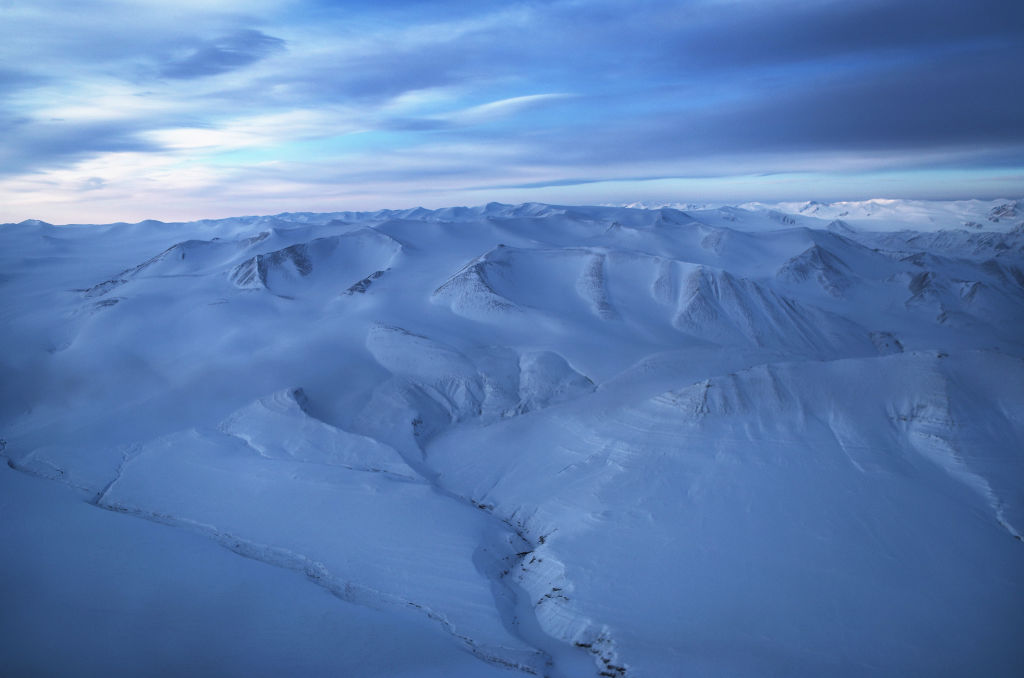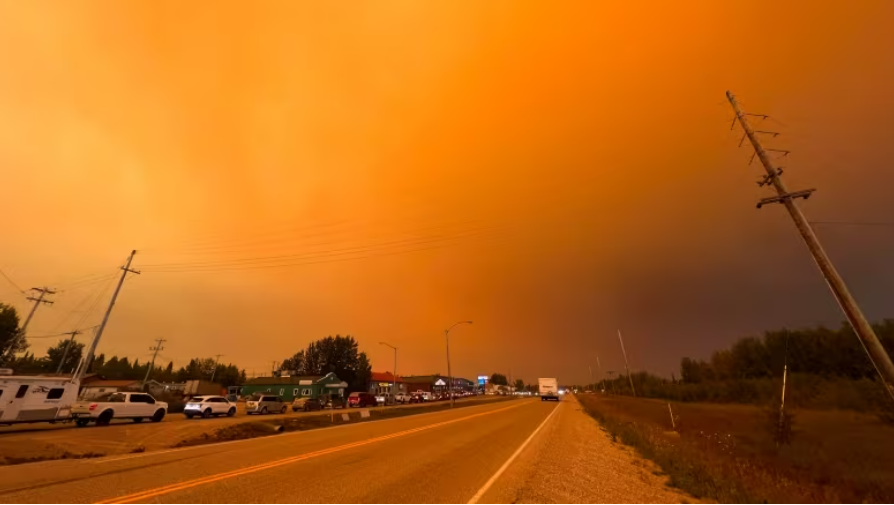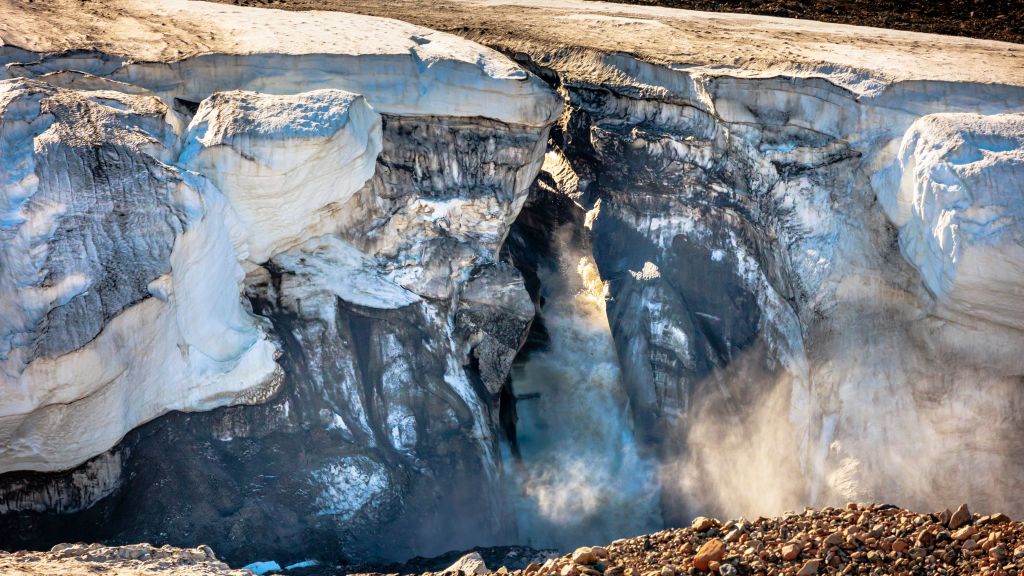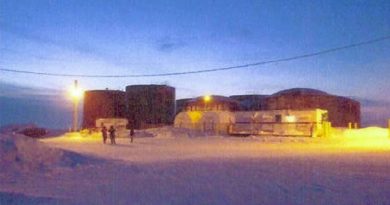Warming North pushing earth into “uncharted territory”: Arctic Report Card

From Canada’s worst wildfire season, to the warmest summer surface air temperature on record, the changing North is pushing the environment into uncharted territory, the National Oceanic and Atmospheric Administration said in their annual Arctic Report Card on Tuesday.
“The overriding message from this year’s report card is that the time for action is now,” NOAA administrator Rick Spinrad said in a statement. “NOAA and our federal partners have ramped up our support and collaboration with state, tribal and local communities to help build climate resilience.
“At the same time, we as a nation and global community must dramatically reduce greenhouse gas emissions that are driving these changes.”
In 2023, the Arctic experienced its sixth warmest year on record at -7 C. However, it was the summer surface air temperature—measured from July to September—that set off alarms, reaching the highest levels ever recorded at 6.4 C.
Implications of rising temperatures
Regional differences were also logged, with a colder-than-normal spring in Alaska that caused the snow on the ground and the ice in the sea to melt more gradually
Meanwhile, Canada’s north-central Arctic witnessed its highest spring average temperatures ever registered.
The report used the Canada example, among others, to illustrate the broader implications of rising temperatures.
“Prolonged warmth over Arctic lands can even impact summer sea ice extent and sea surface temperatures by warming waters in the major rivers draining the region, as noted this year near the ocean outlets of the Mackenzie River in North America and the Ob, Yenisei and Lena Rivers in Asia, draining areas that had significantly above-normal late spring and summer temperatures,” the report said.
Wildfires in Canada’s Northwest Territories
Canada’s Northwest Territories (N.W.T.) was ravaged by wildfires this summer with 12 communities evacuated and 46,000 residents displaced.
Altogether, 300 individual fires scorched an area totaling 4.16 million hectares.

Wildfires in the North are a normal part of the ecosystem; however, human actions and evolving fire management practices are contributing to changes in their duration and severity. But the unusually low precipitation and elevated temperatures in the N.W.T. this year contributed to a wildfire season the Arctic Report Card described as “extraordinary.”
“High latitude wildfire poses threats to human life, property and activities, including traditional food gathering,” the report said. “In recent years, extreme wildfire activity relative to the late 20th and early 21st centuries’ averages has occurred in the North American or Eurasian sub-Arctic in most summers.”
Sea ice extent and the Greenland ice sheet
Sea ice extent in the Arctic was its 6th lowest since satellite records began in 1979, with the report highlighting that the last 17 extent measurements for September, were the lowest on record.
Canada’s Northwest Passage saw the effects first hand.
“Summer 2023 extent in the Passage was among the lowest observed in the satellite record, based on Canadian Ice Service charts,” the report said.
“Sea ice loss was slower than average at the start of the 2023 melt season but accelerated in July. By late August both the Northern Sea Route and Northwest Passage were open for non-ice hardened ship traffic.

The Greenland Ice Sheet had above average winter snow accumulation this year but still lost mass.
Its Summit Station clocked 0.4° C on June 26 and experienced melt for only the fifth time since observations started to be recorded 34 years ago.
“The total number of melt days across [The Greenland Ice Sheet] was above average virtually everywhere, and especially in Northwest, Northeast, and South Greenland, which experienced >20 more melt days than average,” the report said.
Indigenous knowledge, scientific partnerships
Indigenous communities in the Arctic are experiencing the transformation of the region first hand and the report highlights the importance of local knowledge and science working together to better understand the evolving environmental changes.
The report cited two projects doing important work.
In Alaska, University of Alaska scientists and Iñupiaq observers are monitoring long-term environmental change in northern communities as well as the knock-on and social and cultural impacts.
And in Finland, Snowchange Cooperative, an NGO made up of a network of local groups and Indigenous peoples, has done important environmental work in the Sami areas.
“To understand and adapt to this transition, local to international partnerships, including with Arctic Peoples and Indigenous communities, are vital for collecting and using diverse observations and knowledge, as well as for identifying resilient actions to long-term climate impacts and abrupt disturbances,” the report said.
The Arctic Report Card is a peer-reviewed publication that seeks to give a yearly overview of the changing Arctic.
This year’s edition included contributions from 82 experts from 13 countries.
Write to Eilís Quinn at eilis.quinn(at)cbc.ca
Related stories from around the North:
Antarctica : British research ship crosses paths with world’s largest iceberg, The Associated Press
Arctic : Arctic Permafrost Atlas offers insights into the North’s changing landscape, Eye on the Arctic
Canada : Hard hit by climate change, Indigenous leaders want strong voice at COP28, CBC News
Greenland : Blog: Don’t be fooled – we can and we must limit temperature rise to 1.5°C, Irene Quaile
Norway : Assessment looks at dust in Arctic and its impacts on Svalbard, Eye on the Arctic
Russia: Melting permafrost may release industrial pollutants at Arctic sites: study, Eye on the Arctic
United States: Bursting ice dam in Alaska highlights risks of glacial flooding around the globe, The Associated Press



